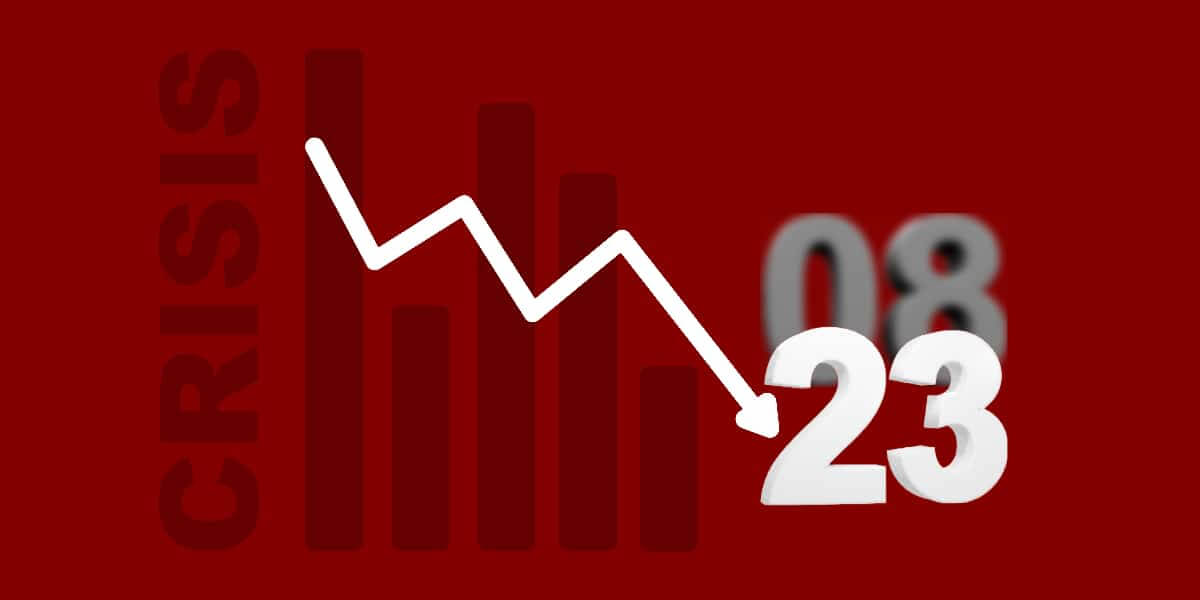
Possible 2023 financial disaster: Is 2008 returning?
Introduction
As we approach the halfway mark of 2023, concerns about another financial disaster reminiscent of the 2008 economic crash have resurfaced. The global financial crisis of 2008 left a lasting impact on economies worldwide and changed the financial landscape. It has been 15 years since that dark period in history, and analysts are speculating whether history could repeat itself. This article analyzes what causes concerns about a new financial crisis and its similarities or differences from the 2008 economic collapse.
The 2008 financial crisis: A brief recap
In 2008, the economy crashed. This was caused by a number of factors, including the housing bubble, subprime mortgages, and CDOs (complex financial instruments). The crisis led to the collapse of major financial institutions, massive unemployment, and severe economic downturns across the globe. Governments and central banks took action to stabilize their economies, but the crisis had lasting consequences.

Fast forward to 2023, and the global economy is experiencing a period of uncertainty. The COVID-19 pandemic, inflation, supply chain issues, and geopolitical tensions have raised worries about another financial crisis. The following factors are contributing to these concerns:
1. High levels of debt
Much like the 2008 crisis, high levels of debt are once again a significant concern. Both public and private debt have soared in recent years, fueled by government stimulus measures and low-interest rates. This increase in debt could lead to a new wave of defaults and bankruptcies, potentially weakening the financial system.
2. Inflation and monetary policies
Inflation has become a pressing issue, with central banks facing the challenge of balancing economic growth and price stability. Low-interest rates and high quantitative easing have raised concerns that central banks might face difficulty in controlling inflation. This could ultimately result in a financial crisis.
3. Real estate and housing market
The housing market has experienced a boom in many countries, with prices reaching record highs. Rising housing prices due to low-interest rates and low supply have caused worries about a new housing bubble. If the bubble were to burst, it could trigger a financial disaster similar to 2008.
4. Rising geopolitical tensions
Geopolitical tensions have increased in recent years, with conflicts and trade wars among nations worsening economic uncertainty. These tensions may lead to market disruptions, capital outflows, and a global growth slowdown, which could cause an economic crash.
5. Cybersecurity threats and technological risks
The increased reliance on technology in financial systems has also raised concerns about the potential for cybersecurity threats and technological risks. A large-scale cyberattack or technology failure could severely impact financial institutions, potentially leading to a financial disaster.
Is 2008 back in 2023?

There are similarities between the current economic landscape and the factors that led to the 2008 financial crisis. However, it is essential to recognize that the global economy has also undergone significant changes in the past 15 years.
Financial regulations have been tightened, and banks have been forced to maintain higher capital buffers to mitigate risks. After the 2008 crisis, governments, central banks, and financial institutions became more aware of potential dangers. In 2023 they should be better equipped to respond to crises.
However, the possibility of another financial disaster cannot be ruled out entirely. The complex interplay of economic factors, geopolitical tensions, and technological risks creates an environment of uncertainty. To prevent history from repeating itself, policymakers must remain vigilant.
Do you want to see a more comprehensive analysis of the possibility of history repeating itself? Please let us know via social media.




